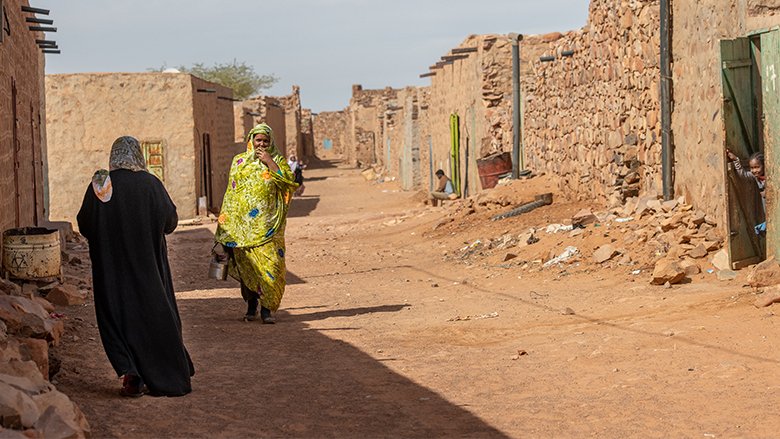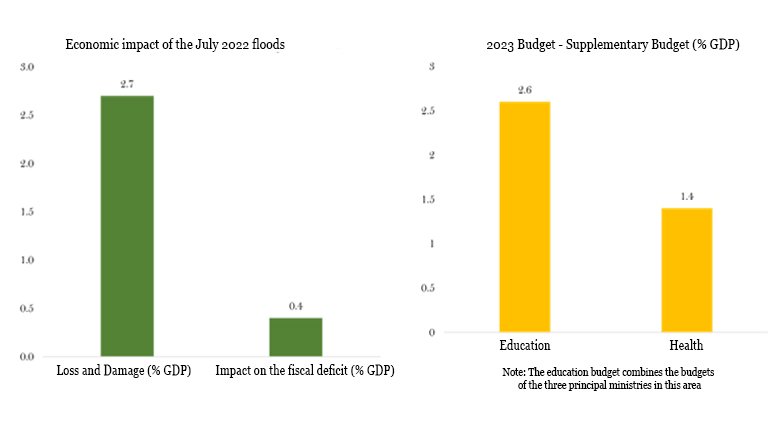Nouakchott, August 3, 2023 – According to the sixth edition of the World Bank’s Economic Update on Mauritania (in French), the country’s growth rate accelerated, jumping from 2.4% in 2021 to 5.2% in 2022, boosted by a significant increase in exports and resilience in consumer spending. Despite this strong performance, the result was slightly below pre-pandemic levels and continues to fall short of the country’s potential growth rate. Against the background of rising international commodity prices, average annual inflation grew from 3.6% in 2021 to 9.5% in 2022.
However, Mauritania has had to face a number of major new challenges from various climate-related disasters that have had an enormous human impact in the country and threaten prospects for sustainable growth. Between 2000 and 2021, Mauritania ranked as the third worst affected Sub-Saharan African country in terms of the human impact of climate-related events, after Somalia and Eswatini. Flooding is being exacerbated by unplanned urban expansion and poor drainage systems and is taking an increasingly heavy toll on the economy.
The report “Navigating the storm – How urbanization and climate change exacerbate the risk of flooding in Mauritania” notes that if we are to counteract the threat posed by flooding and build a more resilient and inclusive Mauritania of tomorrow, it is now essential to understand the factors that drive flooding and to identify the opportunities arising from these new challenges.
“Mauritania is facing recurrent climate shocks that have a major impact on people’s lives as well as on the country’s infrastructure and economy as a whole. In the face of these challenges, priority must be given today to strengthening resilience and inclusion. The country’s priorities for promoting adaptation and resilience should include measures such as social welfare, reduction of gender inequalities, infrastructure protection and perhaps even the energy transition,” notes Urbain Thierry Yogo, Senior Economist for Mauritania.
Figure 1: Budget savings that could be allocated to priority development sectors


